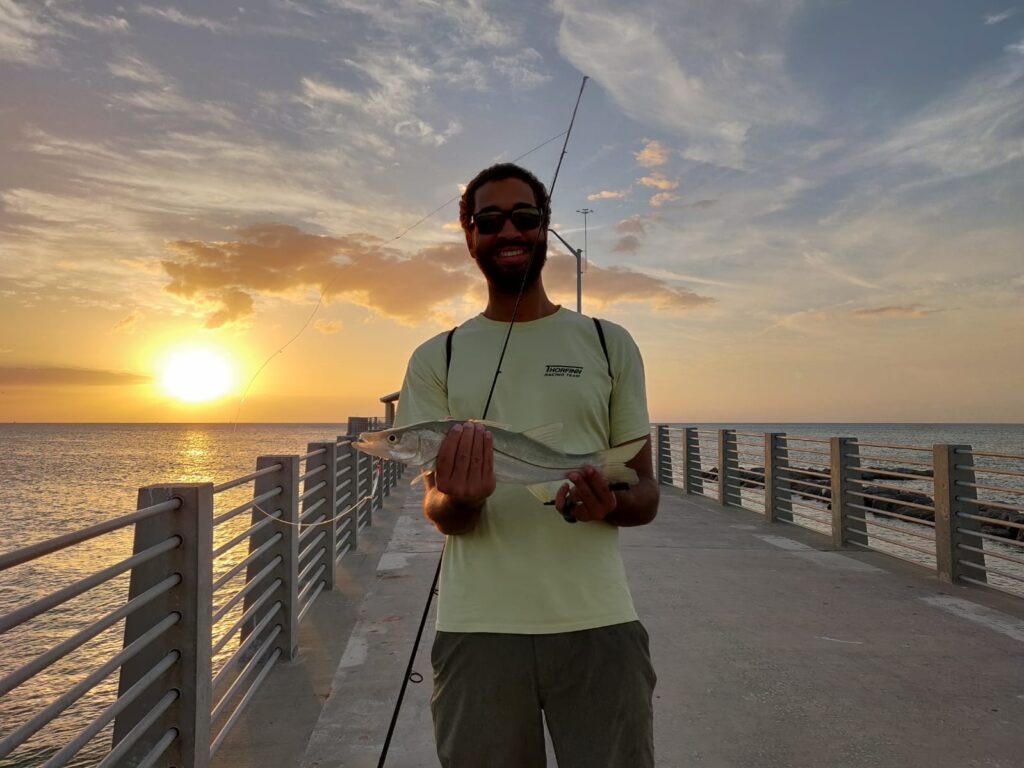By David Vaina
The following Q&A was conducted with St. Petersburg City Councilmember Richie Floyd. Before being elected to the council, Floyd worked as a science teacher and electrical engineer. A Florida native, he is originally from Fort Walton Beach and moved to St. Petersburg after college. This Q&A was edited for length and clarity.
Tell us about how you define climate justice. What would it take to achieve a real sense of climate justice?
Climate justice is the idea that emphasis is placed on mitigating and reversing the effects of climate change in an equitable way, particularly by protecting communities that are on the frontline of impacts. Real climate justice will require wholesale economic change that organizes economic activity around the needs of everyday people and not the endless acquisition of profits, especially in our energy sector.

As a City Council member (elected in 2021), what wins on climate change-related issues have you helped steer through?
Much of our city’s focus has been on hardening our infrastructure for the impacts of climate change. We have created a plan to improve our stormwater infrastructure and continue to do future planning for the needs of a coastal city. However, there are many opportunities for us to make much more tangible change on climate-related issues.
What should the council be most proud of over the last few years in specifically addressing climate change and local environmental issues?
Before my time on council, they created an “Integrated Sustainability Action Plan” (ISAP). The ISAP is a bold plan to convert the city to renewable energy and future proof it against the effects of climate change. We have since reaffirmed our commitment to the plan.
When you’re out in the community talking to city residents, what are you hearing from people specifically on climate change? What’s the range of emotions people have on this issue? How are they framing their concerns?
The No. 1 thing discussed in our community lately is the impact of extreme weather on our homes and infrastructure. It has been incredibly hard on many people in the city with tens of thousands of homes having recently been damaged. Many people fear for the future and wonder how normal these extreme events will define our future.
Looking ahead to 2025 and beyond, what are the most urgent climatic and environmental issues in St. Petersburg that the Council might (or should) address?
We need to significantly increase our efforts to harden our infrastructure, particularly by ending our significant corporate subsidies and instead direct those funds to capital projects. Additionally, our contract with our investor-owned energy provider is up in 2026, and I believe it is crucial that we explore a publicly owned alternative.
As we know, climate change is a global issue. Yet we now find ourselves in a situation where thinking and acting locally might be the most viable political strategy for addressing climate change. What can St. Pete and other cities in Florida do on this issue?
Our biggest opportunity in St Pete is to take public ownership of our energy utility and rapidly transition it to renewables. All cities should consider doing the same. Additionally, local officials should use their platforms to advocate for federal and state governments to invest in climate-related projects.
How are you working with the state government and other communities in Florida on climate change and other environmental issues?
Our state government does not care about how climate change impacts the residents of this state, so there is very little opportunity to work with them. As for other local communities, many council members have relationships with local elected officials in other cities and share information and strategies with each other. I have, for instance, connected with officials in Tallahassee and Winter Park to discuss the process of creating a municipally owned energy utility.
Outside of government, what roles do you see for the private sector in dealing with climate change issues in St. Petersburg and throughout Florida?
Climate change is an issue that impacts every facet of our lives and will require significant contributions from all sectors of our society. Labor unions in particular play an important role as the working class are set to be the most impacted group of people because they do not have the means to move or harden their homes the way wealthier people do. But they have significant power in changing the trajectory of our planet by using collective power to bring about positive change.
This Q&A was conducted by David Vaina, who has a Ph.D. in political theory and has helped fund, develop and operate Florida nonprofits over the last 15 years. His new book, “On-Ramps to a New Civil Society: Mutual Aid at the Edges of the Anthropocene” (Rebel Hearts), was published this fall. Vaina lives in rural north Florida.
Sign up for The Invading Sea newsletter by visiting here. To support The Invading Sea, click here to make a donation. If you are interested in submitting an opinion piece to The Invading Sea, email Editor Nathan Crabbe at ncrabbe@fau.edu.



